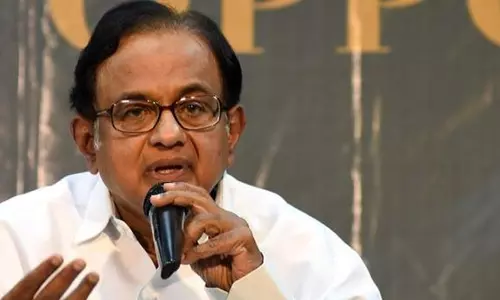
A take on the deep-state
text_fieldsFormer Home Secretary GK Pillai’s statements, made in a television interview on 25th February about Ishrat Jahan fake encounter case, have generated a political firestorm. BJP and Sangh Parivar have always stood in support of the police officers who were accused in the case of extra judicial killing of Ishrat Jahan.
Pillai’s statement that P. Chidambaram had changed an affidavit which described Ishrat Jahan and others killed in the encounter as LeT operatives has reinvigorated the BJP’s spirits. They are escalating allegations that Chidambaram intervened in support of an LeT operative. They have got a good opportunity to vociferously repeat their customary argument that the secular parties including Congress are appeasing terrorists. Earlier too, following the statements of David Colman Headley, made during the video-conference trial, the Sangh had propagated the argument.
Ishrat Jahan case is not relevant to the alleged connection of the murdered with LeT. The case goes that four youth were murdered in cold blood in a police encounter in Ahmedabad on 15th June 2014. It says that it was a fake encounter and civilians were murdered extra judicially. Police officers including DG Vansara are accused with in the case. Then, the question that if Ishrat Jahan was linked to LeT is impertinent. However, Supreme Court has decided to consider the details of the case once again.
In the aforesaid interview, GK Pillai had nowhere denied that there was no fake encounter. But there are certain other things he says in the interview. ‘We enticed some operatives of the LeT to come to India and targeted them and that was a successful operation’, he says. He also claims that this is something any intelligence bureau around the world would do. He also goes on to say ‘…The movements of the intelligence agencies to protect the country might not necessarily be within the ambit of the law’. Genuine discussions are ought to be held on these remarks of him.
It is undeniable that within the democratic system a secret ‘structure’ is operating without binding to its basic principles of accountability and transparency. This phenomenon, called deep-state, is operative in many countries around the world. An examination to the records of a few cases of terrorist attacks will lead us to the understanding that this phenomenon is active in our country too. A close analysis of Parliament attack case and Afzal Guru conviction - which the country is discussing now again, will tell us about the operation style of the deep-state. If you enquire about the intriguing thing that how an informer of intelligence agencies ended up being a convict in the parliament attack case, it will reveal many things. A look at Ishrat Jahan case also says the style of operation of the deep-state operating in the corridors of our polity. The interview of GK Pillai is underscoring such criticisms of the deep-state.
These are quite possible outcomes when intelligence agencies are nurtured and allowed to thrive without requiring accountability and responsibility towards the parliament and the political leadership. It is significant that intelligence agencies should be brought under parliamentary supervision and bring about more transparency and professionalism in their conduct. Otherwise, a section of the nation can carry out their interests in disguise of national security and official secrets. New debates raised over Ishrat Jahan case should have stirred up such discussions. But such an expectation is out of place when the government itself is instigating extreme nationalism.























